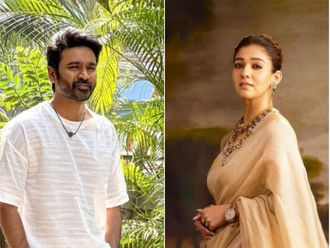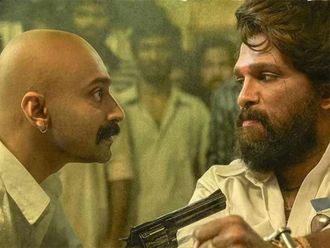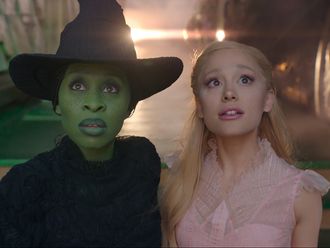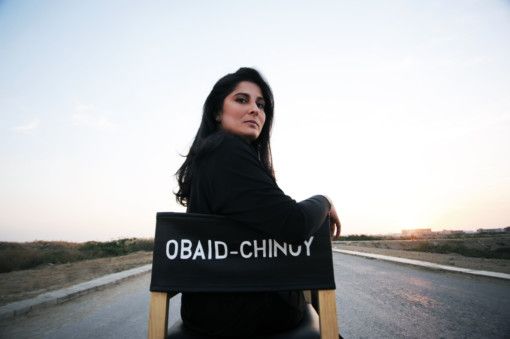
Pakistani filmmaker Sharmeen Obaid-Chinoy may be best known for her double Oscar win and her three-time Emmy Awards glory, but it was her acceptance speech at the Dolby Theatre in Hollywood while she took home the coveted golden statue in 2016 that remains in our collective consciousness.
As she took home her second Oscar trophy for the documentary short ‘A Girl In The River — The Price of Forgiveness’ — a searing portrait of honour killings in Pakistan — Obaid-Chinoy regaled her audience of how then-prime minister Nawaz Sharif vowed to change the law on honour killings after watching her film.
In a master stroke, she made the world sit up and take notice of honour killings and reminded her country’s leader about fulfilling his promise to her. How many people can boast of making powerful people accountable for change on a world stage like the Oscars ceremony?
“I think we need to put people on the spot and place the onus on them for them to realise that they need to do something about it … It is important to hold people accountable, especially people of authority who can make a difference,” said Obaid-Chinoy in an exclusive interview with Gulf News tabloid over the phone from London.
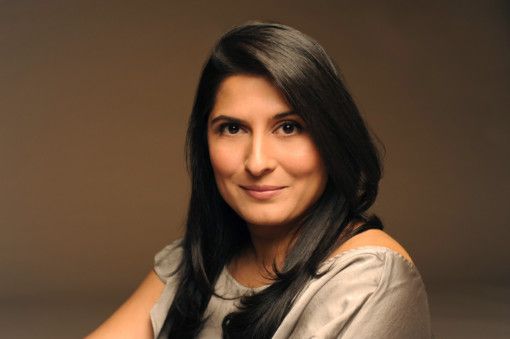
The activist filmmaker behind socially charged films such as ‘Saving Face’, a documentary about acid attacks in Pakistan, and more recently her dialogue-free, animation short ‘Sitara: Let Girls Dream’ on Netflix about child marriages, takes her job very seriously.
While the former journalist Obaid-Chinoy, 41, is beloved and celebrated in the West for her seminal works, her own country may perceive her films as pandering to western stereotypes about developing nations. Has that resistance eroded?
“In our part of the world, when you talk about issues like women and violence against women there is pushback … I feel very strongly that I am not here to be loved. I am here to be free and so feel the women of my region. You don’t have to love us, just let us just be free,” said Obaid-Chinoy.
She isn’t here to win a popularity contest, she reminds this journalist.
Her mantra is simple: Give women the liberty to exist freely. And rest assured that her movies will continue to throw light on unsavoury topics, even if it makes her viewers and perpetrators uncomfortable.
“This is a deeply misogynistic, conservative society where women have historically been treated differently. After so many decades, women have made some gains and now they are demanding equality. Of course there is going to be blowback. I find it amusing that there is no blowback against men who kill women in the name of honour or the men who disfigured women because they seemed to believe that the women have crossed some limits. But the anger is directed towards the person who highlights these injustices that is taking place.”
As her animation short ‘Sitara’, which takes you into the world of 14-year-old Pari who dreams of becoming a pilot but is forced into marriage, creates ripples online, Obaid-Chinoy talks to tabloid about her activism, motives and films.
Excerpts from our interview with Obaid-Chinoy, the fierce filmmaker who has given a voice to the voiceless …
Q: What was your motive behind making ‘Sitara: Let Girls Dream’?
![TAB 200513 Sharmeed Obaid Chinoy SITARA - BTS Images [F] (2)_1-1589463997363](https://imagevars.gulfnews.com/2020/05/14/TAB-200513-Sharmeed-Obaid-Chinoy--SITARA---BTS-Images--F---2-_1-1589463997363_172136fdbb4_original-ratio.jpg)
A: As a documentary filmmaker, I did a series of films around the theme of young girls being married off and one of the things that struck me about all of them were about those young girls talking about their dreams. Usually, when we talk about child marriage we talk about those girls needing to get married at a young age, but we never talk about their shattered dreams. It is always about the society, it’s always about the parents and it is always about the culture that they were born into. It is never about the individual or what they aspire to do or what their hopes are.
I wanted ‘Sitara’ to be about their dreams. I wanted it to be about a film where parents and children realise that it is so important to allow a girl to realise her dreams. It doesn’t cost very much, except for some encouragement from parents to encourage their daughters to realise it.
Q: ‘Sitara’ is an animation with characters that are South Asian and my children, who are Indian, were excited about seeing faces that looked like them in your animation film. Was that deliberate?
A: It is important that our children have visual representation of themselves on the screen. They should have a representation of our textiles, our food, our skin colour and our culture so that they can get see some part of themselves on the big screen because we never do. Whatever is created for our children especially are all driven by Hollywood. It is important to have a sense of identity tied to the big screen as well.
Q: What has been the reaction from women for ‘Sitara’?
![TAB 200513 Sharmeed Obaid Chinoy SITARA - BTS Images [F] (1)-1589463989189](https://imagevars.gulfnews.com/2020/05/14/TAB-200513-Sharmeed-Obaid-Chinoy--SITARA---BTS-Images--F---1--1589463989189_172136fbbc6_original-ratio.jpg)
A: ‘Sitara’ had such a tremendous worldwide feedback since Netflix has a global audience. We had viewers from the Middle East, Africa and Latin America writing to us that ‘Sitara’ resonated with many parents and children alike. We have had young boys and girls from high school write to us saying that it was important for them to see that somebody in this world was paying attention to their dreams. We made their dreams a reality, they said.
We also encouraged as many community screenings as possible around the world and the feedback has been wonderful. It was trending number one in so many different countries in the week it opened. I know it resonated with people in different ways. A few have spoken about how our film was breaking the cycle we had. In ‘Sitara’, we show how the brother rejecting his father in the scene where he removes his father’s hands from his shoulder. It was a very significant and difficult thing for him to be doing, but he did it. He was shrugging off the deep-seated patriarchy.
Q: How difficult was it to tell your story that touched upon child marriage and generations of patriarchy in less than 25 minutes?
![TAB 200513 Sharmeed Obaid Chinoy SITARA - BTS Images [F] (2)-1589463994767](https://imagevars.gulfnews.com/2020/05/14/TAB-200513-Sharmeed-Obaid-Chinoy--SITARA---BTS-Images--F---2--1589463994767_172136fd190_original-ratio.jpg)
A: The story was always going to be about a young girl who dreamt of being a pilot and the reason why I wanted her to be a pilot is that I wanted her to have the ability to fly. And so many girls don’t have the ability of flight in real life, because their wings are cut at a young age.
I also wanted the time limit to suitable for the young children to watch it and digest it. I wanted ‘Sitara’ to be screened in classrooms and have heathy discussions around it. I didn’t want the film to take hours and hours for them to get the message.
Q: Though the topic of child marriages and young brides is grim, the movie is surprisingly upbeat. Were those choices made to make the short film palatable to young minds?
A: Absolutely. We wanted the colours we chose, the brightness and the visual expressions on the younger daughter’s eyes when they light up to be palatable. I wanted those colours to be today’s colours. I wanted the children to see the film and enjoy it while walking away with a message too. Sometimes the things that we see from our part of the world are very heavy handed. This is a film about child marriage, but it is also a film about dreams. And dreams are fluffy and they fly.
Q: The patriarch in ‘Sitara’ is shown as a towering, obese man. Was his size a symbol of his dominance?
A: We wanted him to be someday who is towering and was like an imposition. I wanted him to evoke that type of feeling in you. I wanted you all to realise that he is somebody of importance and we gave him that physique because we wanted to highlight the difference between him and those around his home.
Q: The animation industry is a nascent one in Pakistan. How difficult was it to break ground?
A: Animation studios are very difficult to run and are very expensive to run especially in a country like Pakistan where there are frequent power outages and the services go down. ‘Sitara’ is our labour of love in many ways.
Q: Are you happy that your films are becoming instruments for social change in Pakistan?
![TAB 200513 Sharmeed Obaid Chinoy Sharmeen Obaid-Chinoy, Ava DuVernay, Meryl Streep and John Stewart - #WITW2015 [F] (2)-1589463986614](https://imagevars.gulfnews.com/2020/05/14/TAB-200513-Sharmeed-Obaid-Chinoy---Sharmeen-Obaid-Chinoy--Ava-DuVernay--Meryl-Streep-and-John-Stewart----WITW2015--F---2--1589463986614_172136fb1b7_original-ratio.jpg)
A: It is important to use films for social justice issues. Every film has a potential to reach a larger audience — especially in our parts of the world where there is a high level of illiteracy. I have been doing this for the last part of the decade or so and my films have been successful in moving the needle on the issue. They have also been helpful in being able to convince the government officials that they need to take stricter actions or have better legislation and better awareness. It’s important to create awareness and I want my films to create empathy.
Q: Your films touch upon searing, bleak subjects. How do you gain closure?
A: For me, the closure comes from being able to say that my films have helped in moving the need on an issue. After ‘A Girl In The River’, we were able to play a small role in impacting legislation and that was my closure. More recently, I just finished a film in America about racial issues. It touches upon working with legislation and congressmen in America to see how we can push through for better legislation for college athletes in America.
Q: Do you ever question your source’s motives for speaking to you in your documentaries?
A: Everybody has a story and everybody wants to share that story. More often than not, it is the women who have had injustices done to them. Nobody has ever taken the time to hear their stories and understand what has happened to them. Nobody has taken the time out to hear them and explore how it has impacted their lives. My inbox is full right now with many women wanting to tell their stories.
—————————————
QUOTE/UNQUOTE
“I watch Bollywood films. I am a big fan of Aamir Khan and I think Deepika [Padukone] did an excellent job in ‘Chaappak’ about acid attack violence. I was a big fan of Irrfan Khan. I am a big fan of Zoya Akhtar. She’s incredible. There is this new generation of actors and actresses in Bollywood that are breaking from the path and making socially motivated films, with strong messages and that is important,” — Sharmeed Obaid-Chinoy when asked if she watched Bollywood movies in her down time.
——————————————
Don’t miss it!
‘Sitara: Let Girls Dream’ is streaming on Netflix now.



